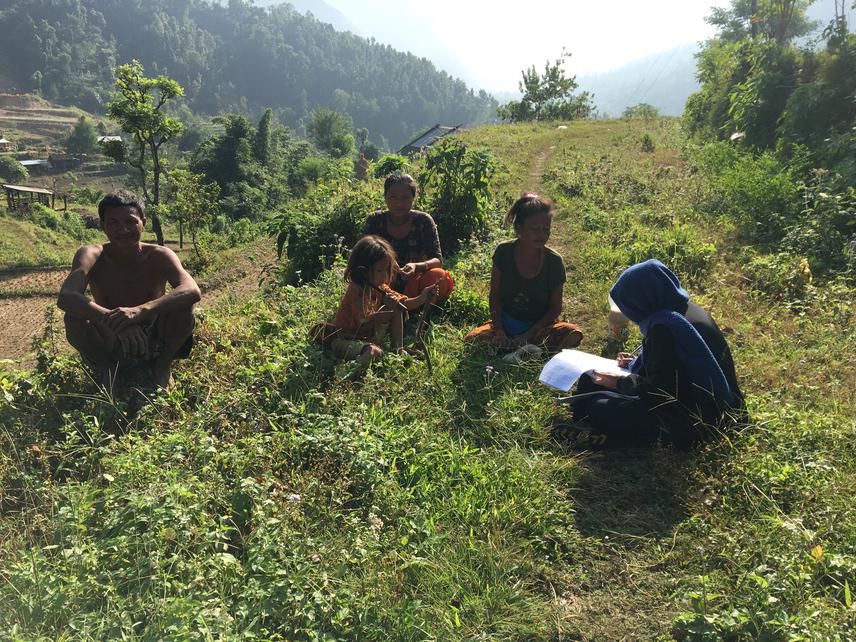Article featuring the project.
The Record - Chamero, chiuri, and Chepangs, Bats, chiuri trees, and the Chepang community make up a unique ecosystem in the Chure region that is now coming under threat.
24 Sep 2019 Shaktikhor, Nepal, Indian Sub-continent Communities | Mammals | Bats
Bats and Chiuri of Chepang Heritage Trail: The Mutualistic Relationship Between Fruit-Eating Bats, Chiuri and Indigenous Chepang Community
Nepal is listed as one of the vulnerable countries to the impacts of climate change. Many indigenous communities dependent on natural resources are affected by this environmental catastrophe. Chepang community of Nepal is a highly marginalized indigenous group known for bat hunting. Bats play an important role in pollination of Chiuri (Diploknema butyracea), essential plant for the community. However, both plant and mammals are threatened by several anthropogenic and environmental factors. This project hence will be assessing the knowledge of Chepang people on climate change, execute interventions and propose future sustainability management plans for bats and Chiuri in the community.

The Chepang community of Nepal is an indigenous group, inhabiting the Mahabharata mountain range of central Nepal. In recent years, the community has shifted from a semi-nomadic lifestyle to permanent settlement. However, this has become extremely difficult for the tribe due to severe topography of the country. Extremely marginalized, the Chepang community are known to be dependent on natural resources for various economic and traditional purposes. Butter tree, also known as Chiuri (Diplokenma butyracea) is one of the most important plant used by this community for health benefits, food resources, fertilizers and fodder. Moreover, the plant holds traditional cultural significance in the community since daughters are given this plant as dowry. Locally found bats play an essential role in the pollination of the plant.
However, the Chepands are also a known bat hunting tribe and this is seen to affect the production of the plant. There has been recent decline in the production of the plants as observed by the local and although there could be various anthropogenic factors aligned to the cause, climate change can be speculated to be one contributing factor to this decline. Although traditional bat hunting is one of the many aspects of this unique indigenous tribe, recent shift in the trend of serving bat meat as delicacy in nearby markets has pressured the bat population in the community. This, along with climate change, in turn has affected production of Chiuri flowers and hampering the community’s socio-economic and socio-ecological elements.
The inter-relationship between the plant, mammal and the community are hence in a delicate balance that is increasingly threatened by climate change and environmental change. The project thus will be exploring the knowledge of community on climate change and its impact through questionnaire and interview surveys. Focus group discussions will be done to discuss best alternative livelihood for the community and based on the community’s preference one capacity development training and awareness activities will be conducted. Results will be shared with local and national stakeholders to encourage resilience against climate change in such communities.
Article featuring the project.
The Record - Chamero, chiuri, and Chepangs, Bats, chiuri trees, and the Chepang community make up a unique ecosystem in the Chure region that is now coming under threat.